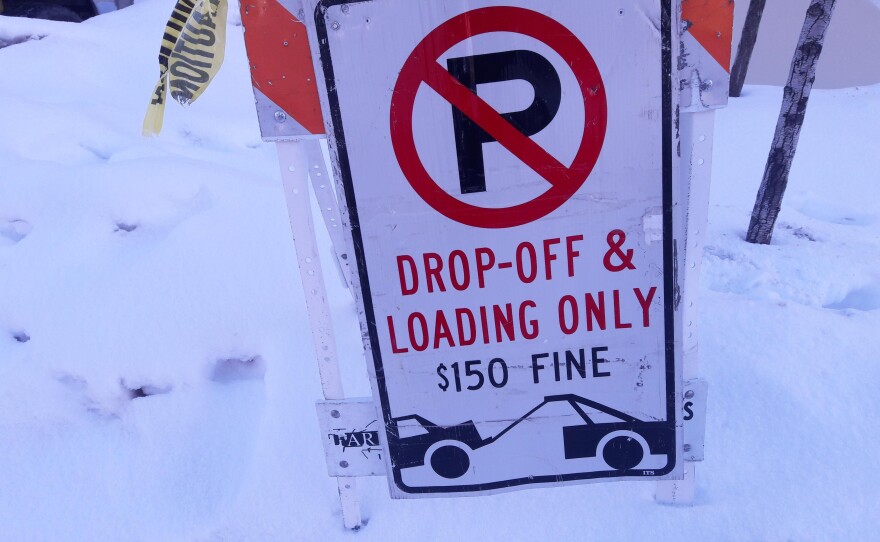Park City Municipal says the drop-and-load-zone program on Park City Main Street is working. But taxi, rideshare drivers and transportation services, who must purchase permits to use the zones, have mixed feelings.
Four Seasons Concierge Transportation owner Sam Rubin hasn’t bought drop-and-load-zone permits for his transportation company yet, and he says he likely won’t. Rubin is concerned that transportation stakeholders’ ideas weren’t considered in the program, and that because all the zones are on the east side of the street, it’s unsafe for passengers to cross to the other side to reach their destination. His main issue with the drop-and-load program is that it’s a four-month trial, but permit holders pay $200 for the full year.
“For us, to pay $200 for an annual pass that may only be valid for four months, with no idea if we will get any type of a refund, just doesn't sit well with me,” Rubin said.
KPCW clarified in an email with Park City Economic Development Manager Jonathan Weidenhamer that there will be no refunds if the program ends after winter. He suggested considering the $200 permit as a peak winter season permit that costs $50 per month. If the city expands the program to the summer, Weidenhamer says permit holders will have free access to the drop-and-load zones.
For Zach Wellman, who has a small limo company, the program is cost-prohibitive. He says his company can only afford a permit for half of the fleet and suggested a different fee structure.
“If the original permit is $200, each vehicle, subsequently, in that company would be $80 after that,” Wellman said.
Rideshare drivers expressed a similar sentiment. One Uber driver told KPCW the program was a “money-grabbing scenario,” while another said if he were to pay $200, he would want the permit to apply all year and all day long, instead of just during the winter from 5 p.m. to midnight.
James “Jamo” O’Reilly, director of lodging operations at Deer Valley, gives the city credit for collaborating with transportation stakeholders on this program. O’Reilly says Deer Valley bought 30 passes for its lodging fleet. His guests are adjusting to not being dropped off directly in front of their destinations, but he says traffic on Main Street has also inconvenienced guests and prevented them from getting where they wanted to go quickly.
“Previously, you could pull off the roundabout on to Heber, and it could take 10 or 15 minutes to get in front of the restaurant you want to drop them off on, when traffic gets snarled," O'Reilly said. "So if this makes the amount of time it takes to get them to their destination—they just need to walk a short distance to their business—I think, ultimately, it's a win.”
O’Reilly says the city is on the right track with the program but thinks they could go further.
“Ideally, it would be one big drop-and-load zone on all of Main Street," O'Reilly said. "That's probably not realistic, at least at this time. The other improvement would just be additional enforcement.”
Rubin says he applauds the city for taking initiative to address traffic congestion in Old Town, but he believes the program hasn’t been executed well.
“Again, you’re not going to learn what works until you try it or you don't try it," Rubin said. "I just think that there's a lot of things that should have been considered before they rolled out. I think it was rolled out very quickly.”
More information about the drop-and-load program is available at engageparkcity.org.






